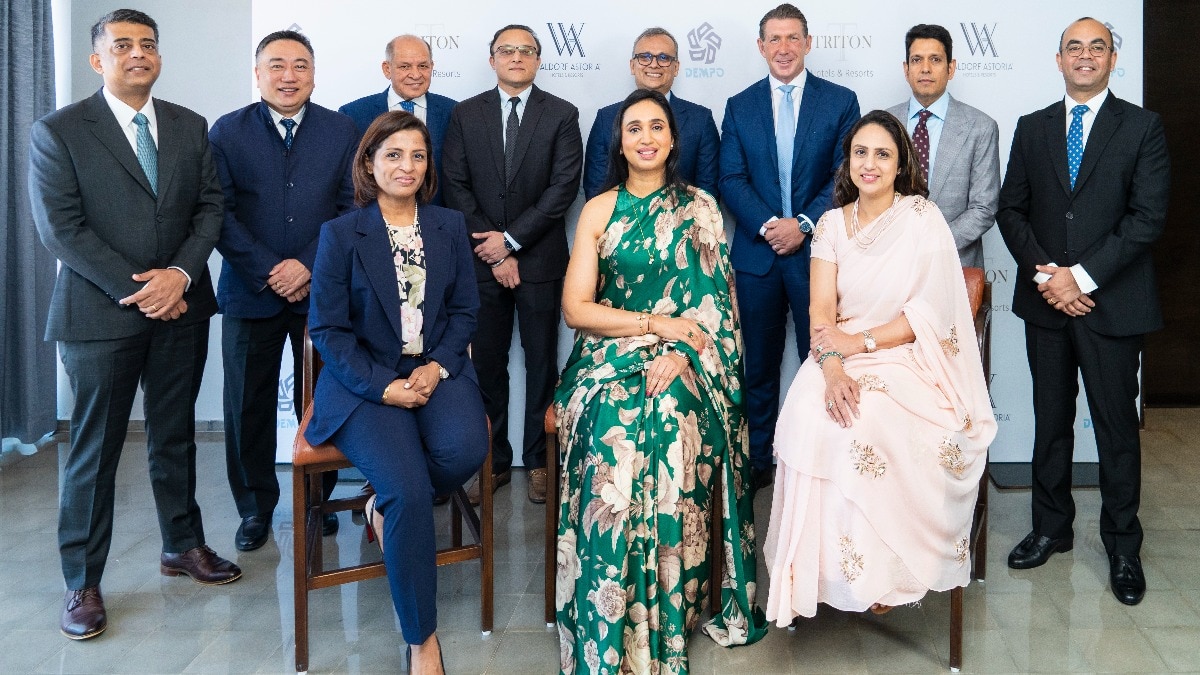When the job market gets ghosted
Frustrated by slow, opaque hiring, Gen Z is walking away—and redefining what it means to be professional.


After four rounds of interviews for a strategy role—two virtual panels, a written assignment, and an in-person meeting—22-year-old Priya Sethi did not hear back from her prospective employer for weeks. No feedback or a courtesy email charting out the timelines. Then, out of the blue, the company emailed her seeking identity documents “to keep her application moving”. By then, she had already accepted another offer. She left them on read. Her reason: “If they couldn’t respect my time when I was in the process,” she says, “why should I jump to respond now?”
For Amit Dwivedi, the decision came even later. He accepted an offer for a tech role but did not show up on his first day. The interview process, spread over a month, had been peppered with offhand comments about long hours and weekend calls. “I could already see what life there would be like,” he says. “Walking away felt like self-preservation.” Ghosting—once a term for dating drama—is now a fixture in the job market. And while Gen Z workers are often cast as the culprits, industry leaders say the habit is, in many cases, a reaction to being ghosted first.
“Gen Z’s approach to job-seeking is shaped by their experience in a hiring landscape that often lacks transparency,” says Hardeep Singh, president of Right Management India, ManpowerGroup India. “Automated systems, disengaged processes, and rescinded offers have eroded the mutual respect that underpins professional relationships.” Singh points to research showing that 47 per cent of Gen Z globally are considering leaving their current roles in the next six months—but they are also the least confident about finding a role that meets their needs. In a climate where candidates face prolonged, opaque hiring processes, ghosting, he argues, is less about entitlement and more about “a defensive response to being treated as disposable.”
Pushkar Bidwai, CEO of the HR platform People Matters, agrees that the breakdown often starts on the employer’s side. “The frustration is widespread; 74 per cent of job seekers have been ghosted by a company after an interview,” he says. “When your application disappears into the ‘application abyss’, it fosters a sense of disposability. It is easy to see why some candidates feel ghosting back is fair game.”
Mugdha Mahambrey, general manager of human resources at Chalet Hotels, calls the trend a reflection of the system itself. “Gen Z’s ghosting often mirrors the hiring process,” she says. “Weeks of silence after interviews, vanishing offers, automated rejections—trust is already thin. For some, walking away is a way to reclaim control.” But not all disappearances are protest, she adds. In a digital-first world of abundant options and fleeting attention, a subset of young professionals treats job offers like notifications—easy to dismiss when something better appears.
The weight of a bloated process
The hiring process, leaders admit, has become longer, more complex, and layered with assessments and approvals—but despite all this added rigour, many say it hasn’t necessarily led to better hiring decisions or stronger teams. Job descriptions read like three roles stitched into one. Interviews drag on for weeks, feedback is rare, and timelines are vague. In India, the average hire cycle is 35 to 45 days, says Bidwai— a sluggish pace for Gen Z, who expect speed and clarity while juggling multiple offers. Mahambrey notes the need to balance thoroughness with urgency: long timelines and sparse feedback risk a feeling of indifference.
For Singh, protracted processes send another message—that candidates are interchangeable. In a climate where 81 per cent of managers cite economic uncertainty, restructuring, and AI disruption as career threats, even an offer can feel like a fragile promise.
Neeraj Agarwal, CEO of RuralShores Skills Academy, calls it “a reflection, not a rebellion.” Pointing to a 2023 Greenhouse Hiring report showing that 77 per cent of candidates have been ghosted after interviews, he says the silence delivers a blunt message: “Candidates are disposable.” For many young people from rural and semi-urban India, ghosting back is less defiance than a reply to a one-way system. “Respect can be restored with small gestures,” he adds, “like simply saying no.”
Burnout before day one
For some, ghosting is not opportunism—it is survival. Gen Z reports the highest daily stress levels of any generation, with more than half facing high workplace stress and 62 per cent worried about work-life balance, according to a ManpowerGroup report. “Burnout can start long before day one. Many candidates are already balancing unstable jobs, academic pressure, and personal responsibilities while enduring a job search that feels transactional,” notes Bidwai. In that state, they quickly spot red flags—rigid policies, poor work-life balance, or a lack of empathy—and walk away.
Gen Z is also the first generation to openly prioritise mental health, notes Mahambrey. If the hiring process feels draining or disorganised, they see it as a preview of the job itself and opt out. When companies show genuine care for well-being, they are far more likely to stay.
Professionalism, redefined
If trust is fraying, does professionalism still matter? Singh argues that Gen Z is not abandoning the concept—they are redefining it as a two-way street built on mutual accountability. That means valuing transparency, timely communication, and empathy from employers as much as punctuality and preparedness from candidates. Bidwai echoes the shift. “Professionalism still matters, and it always will,” he says. “What is changing is how it is defined. Mutual respect means mutual responsibility. Employers need to communicate and follow through, and candidates need to honour their commitments—or step away with transparency and courtesy.”
Mahambrey adds that the very definition is shifting away from hierarchy. “The traditional notion of professionalism—rooted in hierarchy and one-sided expectations—is being redefined. Gen Z is asking for reciprocity, transparency, and respect. They are not rejecting professionalism; they are reshaping it into a model built on mutual accountability, where both employer and employee are equally responsible for trust, clarity, and follow-through.”
Empowerment over entitlement
While critics term the trend as flakiness, both leaders say the data points to empowerment. Singh notes that 86 per cent of workers globally say purpose is central to job satisfaction. “This is not about shirking responsibility,” he says. “It is about demanding fair treatment and meaningful work.” Bidwai sees it as feedback rather than failure. “Walking away can be a deliberate choice to avoid environments that do not align with one’s values or energy. Employers can use it as a signal to improve, not just as a reason to complain.”
Mahambrey agrees—with a caveat. “For many younger professionals, what looks like entitlement from the outside is empowerment. They are confident in voicing what they need, questioning processes that do not feel purposeful, and setting healthy boundaries around their time and energy. This is part of a generational shift towards mutual respect and accountability at work. Of course, the flip side is that a few may approach opportunities with a lighter sense of commitment, moving on quickly if something feels like a better fit. The opportunity for employers is to create environments where the first instinct is to engage and grow, not to look elsewhere.”
Rebuilding the bridge
So what does a humane, transparent, two-sided hiring process look like? For Singh, it starts with hiring people, not “Gen Z as a class.” AI can scan for skills, but human interaction should temper the process. Keep candidates informed, offer multidimensional upskilling from day one, and show a clear career path. “Hybrid workers report the highest career confidence,” he notes. “Flexibility paired with visible growth is key.”
Bidwai calls for leaner, faster hiring: limit interviews, set firm timelines, and communicate regularly. “Even without an update, checking in maintains trust,” he says. “Respect the candidate’s time, and signal psychological safety early.”
Mahambrey frames it as empathy with discipline. Humane hiring, she says, does not mean abandoning structure—it means simplifying interview rounds, setting clear expectations, and communicating with warmth. But it also means avoiding over-customisation and last-minute pivots that confuse candidates and strain teams. Both Singh and Bidwai back a “candidate-employer code of conduct”: timely updates, constructive feedback, and realistic job descriptions from employers; clear communication, honoured commitments, and transparent withdrawals from candidates.
Mahambrey calls it a recalibration of trust: clarity, follow-through, and pace that meet today’s expectations. “The job market increasingly mirrors dating culture—ghosting, breadcrumbing, soft rejections. The opportunity is to bring emotional intelligence into the process, so it feels relevant to the realities of today.” As Bidwai puts it: “Trust does not start on day one. It starts with that first ‘Hey, we would like to talk’ and grows with every honest exchange after.”
Lead image: Getty
Also read: 'And Just Like That'… and 'The Gilded Age' have one thing in common










